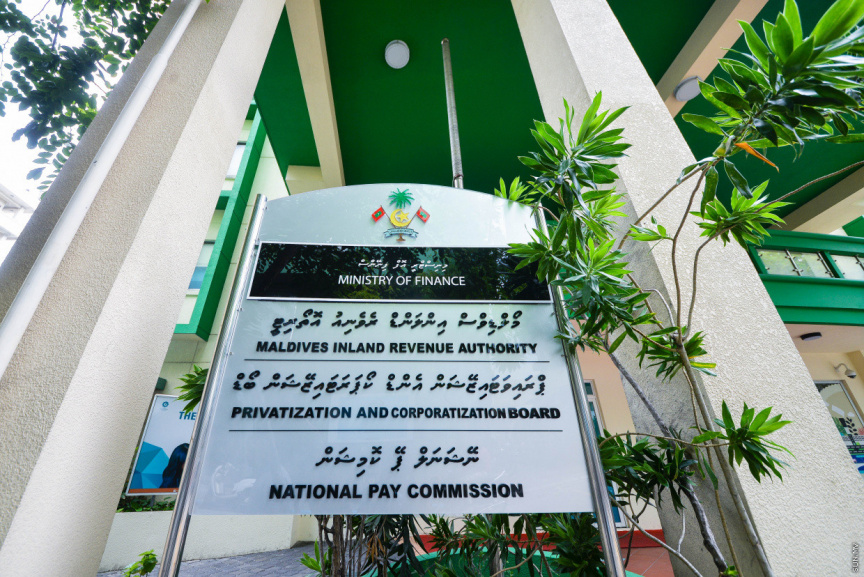Asia-Pacific shares sink after Russian President Putin recognises two breakaway regions in eastern Ukraine as ‘independent’. Russian rouble hits 18-month low and brent crude races to seven-year high.
Global stocks have tumbled while safe-havens rallied and oil surged as Europe’s eastern flank stood on the brink of war after Russian President Vladimir Putin ordered troops into breakaway regions of eastern Ukraine.
MSCI’s broadest index of Asia Pacific shares outside Japan was on course for its worst day for this month on Tuesday, off 2.1 per cent, weighed by markets in Hong Kong and mainland China.
Japan’s Nikkei shed 2.5 per cent.
US and European markets were also braced for sharp losses at the opening bell, with S&P 500 futures down 1.8 per cent, Nasdaq futures off 2.5 per cent, the pan-region Euro Stoxx 50 futures 1.53 per cent lower, and FTSE futures down 0.89 per cent.
In contrast, Brent crude futures rose 1.5 per cent to $96.85, after touching a new seven-year high at $97.21 early in the session on worries Russia’s energy exports could be disrupted. Spot gold added 0.2 per cent to $1,909.10, having earlier hit a new six-month top of $1,911.56.
READ MORE: Turkish official warns sanctions useless against Russia over Ukraine crisis
Putin on Monday recognised two breakaway regions in eastern Ukraine as independent and ordered the Russian army to launch what Moscow called a peacekeeping operation into the area, upping the ante in a crisis that could unleash a major war.
A Reuters witness saw columns of military vehicles including tanks early Tuesday on the outskirts of Donetsk, the capital of one of two breakaway regions.
Putin has signed treaties with leaders of the two breakaway Donetsk and Luhansk regions giving Russia the right to build military bases.
Washington and European capitals condemned the move, vowing new sanctions. Ukraine’s foreign minister said he had been assured of a “resolute and united” response from the European Union.
However, a Biden administration official said Russia’s move did not as yet constitute a “further invasion” that would trigger a broader sanctions package, as it was not a departure from what Russia had done already.
Following Russia’s latest move “we are much closer to military intervention, which of course is going to drive a lot of the risk off sentiment in the markets,” said Carlos Casanova, senior Asia economist at UBP, adding the short term volatility in markets caused by both geopolitical factors and the US Federal Reserve was ‘relentless’.
READ MORE:World reacts to Russia declaration of Ukraine areas as ‘independent’ states
Casanova said the consequences would be higher oil prices, an equity sell-off, and people flocking to safe-haven assets like the Japanese yen.
In Hong Kong, shares of Russian aluminium producer OK Rusal plunged as much as 22.1 per cent to HK$6.18, their biggest daily percentage decline since April 2018.
Away from Russia, and not helping the Hong Kong market, Hong Kong-listed Chinese tech stocks fell 2.7 per cent, with heavyweights Tencent and Alibaba both hit by speculation about a new wave of regulatory scrutiny.
Currencies go quite
In currency markets, moves were more muted, barring the Russian rouble which hit an 18-month low early in Asian trading, before steadying.
The Japanese yen walked back early gains which had taken it to a near three-week high of 114.50 per dollar, fellow safe-haven the Swiss franc was holding steady near the previous day’s one-month high, and the euro fell 0.2 per cent to a one-week low of $1.1286,
“Currency markets are not really showing the same level of caution as equity markets,” said Matt Simpson, senior market analyst at City Index.
“When you read the headlines .. you’d expect to see some follow-through in the markets. We are in equities but we’re not in currencies,” he said.
“Interestingly, overnight the Swiss franc was the safe haven, not the Japanese yen.”
The nerves also drove US Treasury yields lower, with benchmark 10-year Treasury yields diving as much as 7 basis points to 1.846 per cent. Bets on Federal Reserve rate hikes also eased and the chance of a 50 basis point hike next month fell below 1-in-5.
US policymakers have been sparring publicly about how aggressively to begin tightening.
Federal Reserve Governor Michelle Bowman said on Monday that she will assess incoming economic data over the next three weeks in deciding whether a half percentage point interest rate rise is needed at the central bank’s next meeting in March.
READ MORE: Biden, Putin agree to meet in France-brokered summit over Ukraine
Source: TRTWorld and agencies

 News4 days ago
News4 days ago
 News3 days ago
News3 days ago
 World4 days ago
World4 days ago
 World4 days ago
World4 days ago
 Sports2 days ago
Sports2 days ago
 News4 days ago
News4 days ago
 News3 days ago
News3 days ago
 News2 days ago
News2 days ago


















